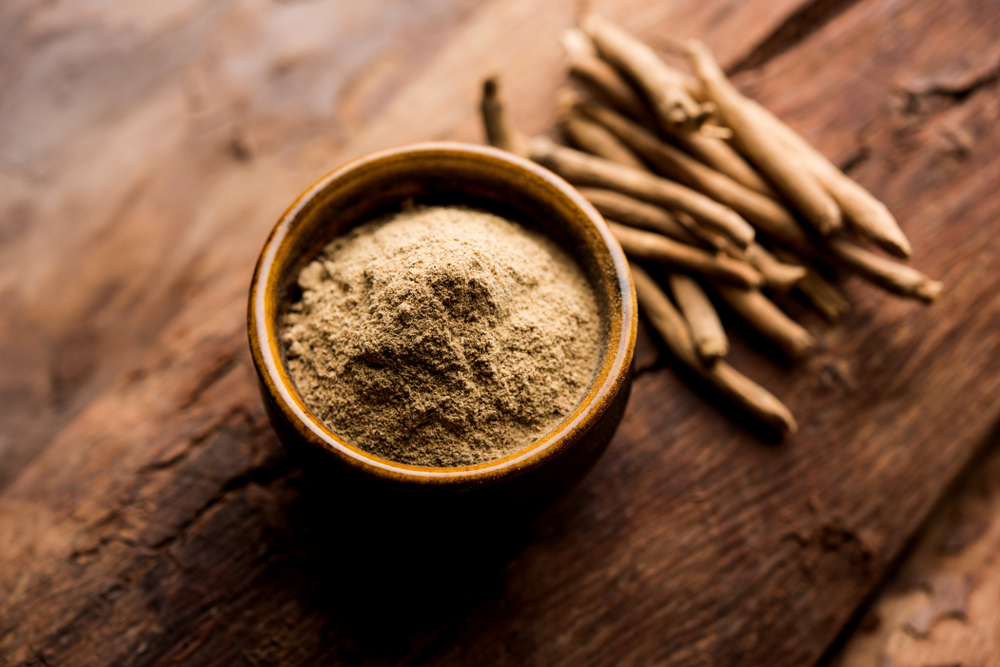Posted on September 10, 2021
What is Ashwagandha?
Ashwagandha (Withania somnifera) also known as Indian Ginseng or Indian Winter Cherry is now being widely talked about on social media, and why not, it has many health benefits associated with it. In fact, this herb is one of the most important and well-known herbs in Ayurveda, the alternative form of medicine based on Indian whole body healing systems, used for centuries.
Ashwagandha in Sanskrit, the oldest language in India, means the smells of the horse, relating to its unique smells and ability to increase strength.
Many of its health benefits are due to its high concentration of withanolides. The most common use of ashwagandha is that its works as an adaptogen, which helps to balance stress levels. It helps reduce the stress hormone cortisol (produced in the adrenal glands), which is produced in response to stress or when your sugar levels get too low. In individuals who were supplemented with ashwagandha, there was a 69% reduction in anxiety and insomnia, compared with 11% of the placebo group1.
Stress can be the main cause of many health conditions relating to the heart, immune, nervous system, brain, muscles, joints and reproductive health, so reducing stress levels is key to better health. It also supports general health by its high antioxidant activity.
By reducing cortisol levels, other reproductive hormones can be produced like testosterone, supporting a healthy reproductive system.
Ashwagandha supports the nervous system by the GABA pathway, promoting relaxation for optimal mental and cognitive activity.
For men, ashwagandha can be the one stop for all, as ashwagandha promotes healthy levels of creatine kinase, which reduces natural muscle damage and supports muscle recovery after exercise2. Also helping to gain muscles mass, while reducing body fat and increasing strength.
Ashwagandha may also support the immune system as it increases the activity of natural killer cells, responsible for fighting infection and staying healthy3. It can also reduce C-reactive protein, an indicator of inflammation in the body (seen in joint pain sufferers) and can be a risk factor for heart disease4.
While ashwagandha can have many health benefits and is becoming well known worldwide. Always check with your doctor before taking any ashwagandha supplements or powders if you are pregnant, breastfeeding, on medication or have a medical condition. It should be taken as part of a balanced diet and healthy lifestyle.
References
- Chandrasekhar, K., Kapoor, J. and Anishetty, S. (2012). A prospective, randomized double-blind, placebo-controlled study of safety and efficacy of a high-concentration full-spectrum extract of ashwagandha root in reducing stress and anxiety in adults. Indian J Psychol Med. 34 (3), 255-262. https://pubmed.ncbi.nlm.nih.gov/23439798/
- Wankhede S, Langade D, Joshi K, Sinha SR and Bhattacharyya S. (2015) Examining the effect of Withania somnifera supplementation on muscle strength and recovery: a randomized controlled trial. J Int Soc Sports Nutr. 12(43). https://jissn.biomedcentral.com/articles/10.1186/s12970-015-0104-9#citeas
- Mikolai, J., Erlandsen, A., Murison, A. and A Brown, K. et al.. (2009). In vivo effects of Ashwagandha (Withania somnifera) extract on the activation of lymphocytes. J Altern Complement Med. 15 (4), 423-430.
- Auddy, B., Hazra, J., Mitra, A., Abedon, B., Ghosal, S. and Nagar, B.. (2008). A Standardized Withania Somnifera Extract Significantly Reduces Stress-Related Parameters in Chronically Stressed Humans: A Double-Blind, Randomized, Placebo-Controlled Study. Medicine. 11 (1), 50-56. https://blog.priceplow.com/wp-content/uploads/2014/08/withania_review.pdf




